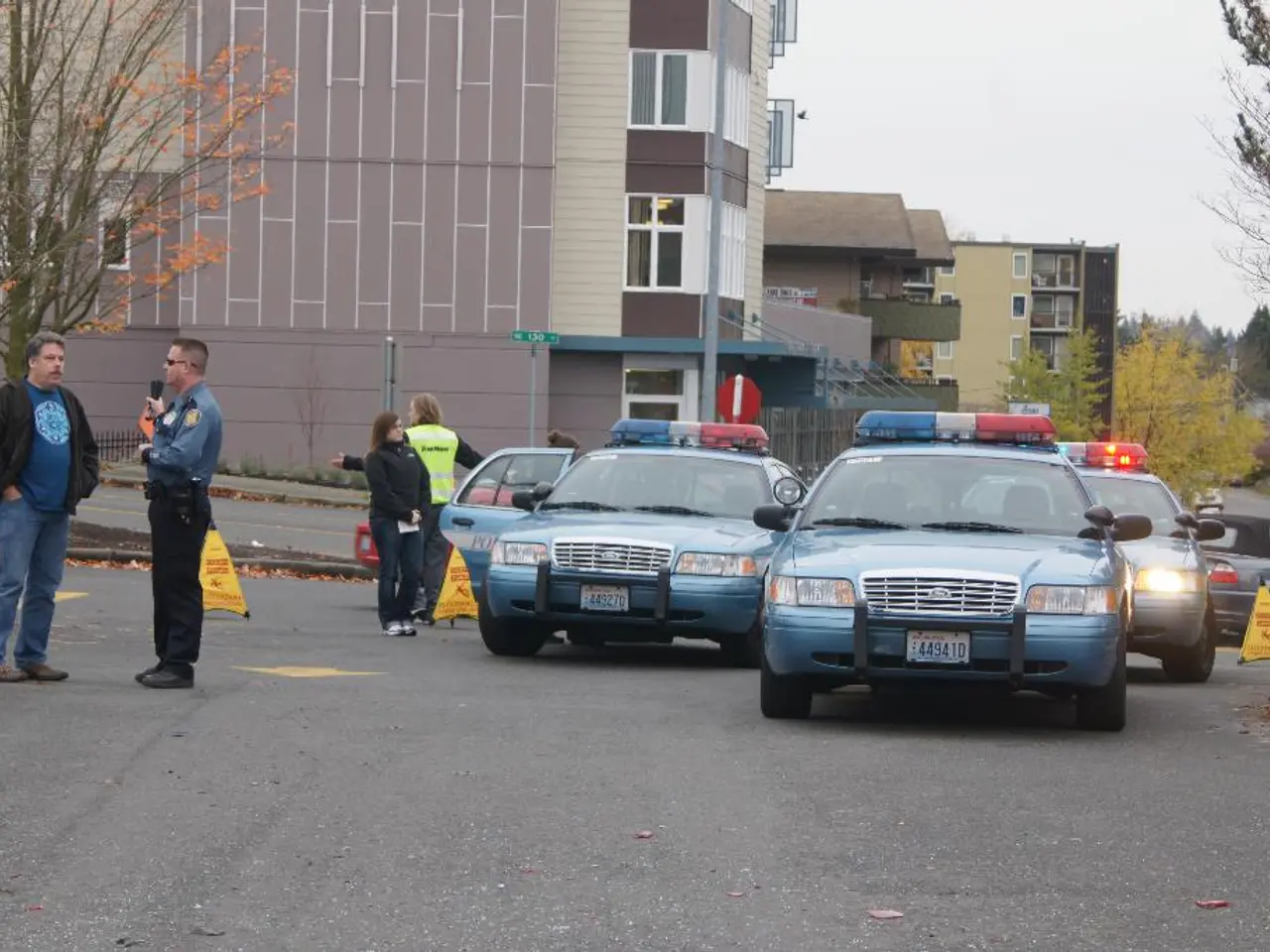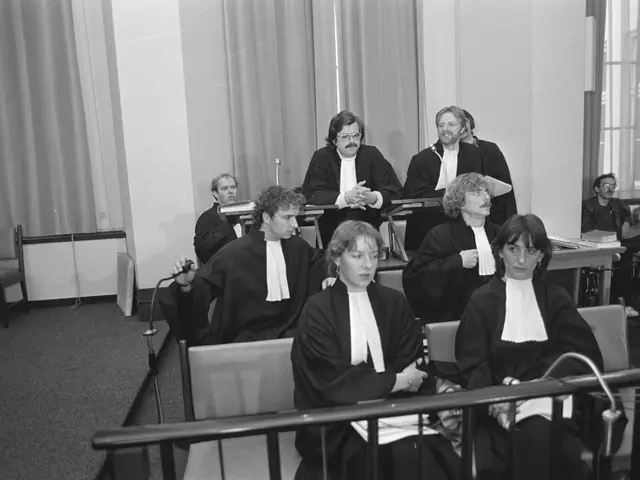Catastrophic downpour in North Rhine-Westphalia leaves streets and basements submerged - Deluge overwhelms North Rhine-Westphalia streets and basements in extensive tidal event
Flooding Hits North Rhine-Westphalia: A Chronicle of Resilience and Emergency Response
Heavy rainfall in North Rhine-Westphalia (NRW) on Tuesday has resulted in widespread flooding, with several cities and towns experiencing significant disruptions.
In the district of Oppendorf, 14 people were rescued from their homes and temporarily accommodated in a school center. The fire department in Mönchengladbach rescued a family from a flooded apartment, and in Bedburg, residents had to retreat to the upper floors, while others were rescued from their homes. Whole streets were underwater and closed, and cars were stranded in the floodwaters.
The cities most severely affected by the flooding were the areas around Aachen, Cologne, the Eifel region, Mönchengladbach, Bedburg in the Rhein-Erft district, and parts of the Ahr valley. These areas experienced flooded streets, homes, and some people being rescued from floodwaters.
In Bedburg, a new residential area in Kaster was up to 60 centimeters underwater. The Puetzbach in Bedburg overflowed, and the fire department is pumping out cellars and building an artificial dam with sandbags and shovels. The Erft river reached the highest of three alert levels ("significant danger") at the Neubrücke gauge in Grevenbroich at times. Significantly increased water levels were also recorded on the Wurm, a tributary of the Rur, in Herzogenrath.
The German Weather Service (DWD) issued an official warning for heavy rain in various locations, including Bedburg and Mönchengladbach. In Mönchengladbach, all available forces were deployed due to flooded streets and cellars, and there were already over 100 deployments by morning.
The ADAC warned drivers about poor visibility and aquaplaning, advising against driving through flooded areas to prevent engine damage. A spokesman for the motorway company also advised drivers to reduce speed and increase distance due to the risk of aquaplaning. On the A46 in Düsseldorf, an autobahn tunnel was full at times due to flooded streets and cellars, causing traffic jams. A truck overturned on the A4 near Frechen due to aquaplaning, causing kilometer-long traffic jams.
Despite the challenges, no injuries were reported by noon. Parents were advised to decide for themselves whether to send their children to school in the morning in Mönchengladbach. The connection from the A1 to the A59 towards Düsseldorf was closed at the Leverkusen-West motorway interchange due to the rain.
The storms are expected to subside as they move northeast, but there may still be localized heavy rain in North Rhine-Westphalia in the afternoon and evening. The deployment of emergency services was particularly concentrated in Bedburg and Mönchengladbach, where they worked tirelessly to rescue residents and mitigate the effects of the flooding. As the day progressed, it became clear that the people of NRW were showing remarkable resilience in the face of adversity.








